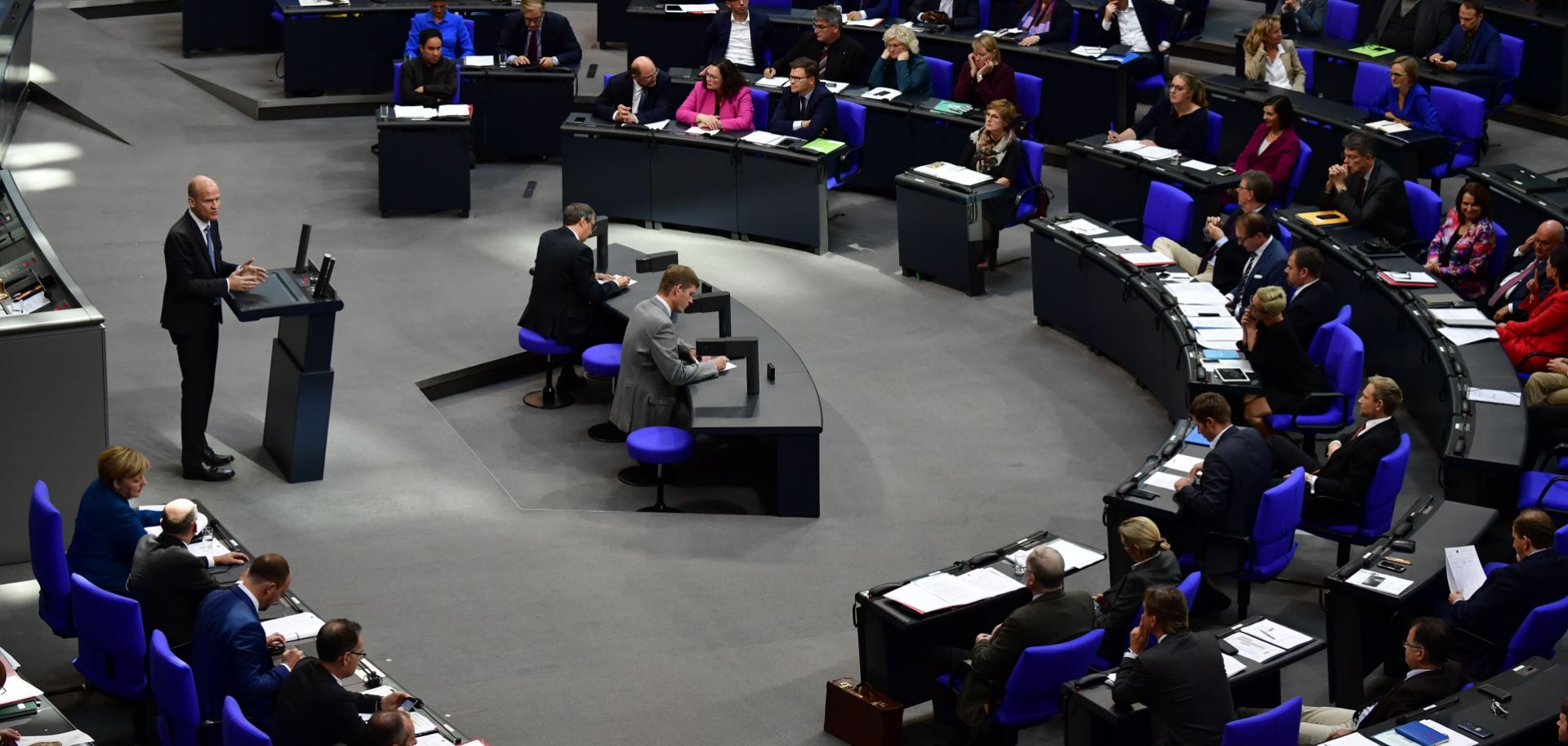ASSESSMENTS
Germany's Political Woes Spell Trouble for Europe
Nov 7, 2018 | 12:30 GMT

Ralph Brinkhaus, leader of the Christian Democratic Union/Christian Social Union parliamentary group, addresses the Bundestag on Oct. 17. Germany -- as well as the rest of the Continent -- will experience major changes as Angela Merkel slowly exits the scene.
(TOBIAS SCHWARZ/AFP/Getty Images)
Highlights
- Germany has entered a period of political turbulence that will likely reduce the effectiveness of the federal government and its influence on European Union affairs.
- In the coming months, the main threat to the continuity of the German government will come from the Social Democratic Party, which is mulling whether to withdraw from the governing coalition.
- Over time, Germany's political polarization could make it harder for Berlin to accommodate its partners in Southern Europe, which would reduce the room for compromise on EU issues.
Subscribe Now
SubscribeAlready have an account?
